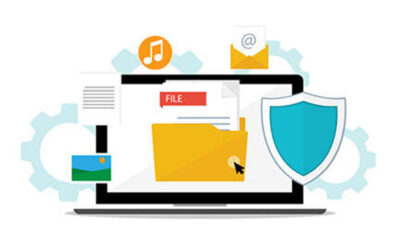World Backup Day is here once again, meaning it is the perfect time to talk about data backups and how they affect your business. By the end of this article, it’s our hope that you will be convinced of the importance of backing up your information. If you haven’t backed up your data, there is no better day to start than today.
Every March 31, World Backup Day sponsors ask everyone to take the pledge to back up their important documents and precious memories. We think it’s important to think about your backups every day, but it is also helpful to have a special holiday dedicated to keeping your data safe. We’ll begin our discussion by learning what backups are.
What is a backup?
Quite simply, a backup is just a second copy of your data. It gets stored in a secondary location so that if the first copy gets destroyed, corrupted, erased, lost, or stolen, you can get it back.
A data backup can also be used to restore a previous version of a system or to restore a system to a previous state. For this reason, backups are considered a critical first step when making large–scale edits to a website, a database, or some other computer system.
Think of it as the undo button in Microsoft word.
There are two main ways to back up your data:
- with an external drive such as a USB, or
- with the Internet (the cloud)
A data backup is a simple form of disaster recovery, but not all backups are capable of restoring a computer system or database server. It depends on what data is saved.
Good backups follow the 3-2-1 rule: that is, having three copies of your data, using two different types of storage media, and backing up one copy offsite. The three copies will help ensure redundancy in case the one backup fails. The two different media helps eliminate the risk that all copies can be destroyed by the same means. Optical discs, for example, tolerate water damage better than LTO tapes, and SSDs cannot fail because of head crashes like HDDs can. Finally, having one copy of your data saved off-site ensures that a localized disaster such as a fire or flood cannot destroy all backups. It also helps stop theft.
RELATED: Cover Your Assets: Planning for the Next Disaster
What data is saved?
A data backup can save a wide variety of data, most of which is organized in discrete units called files. These files are themselves organized into filesystems, which is what you access through File Explorer on your computer. Live data (files that are actively being updated) can also be backed up, but it’s somewhat trickier. Basically, you pause activity on the file long enough to take a “snapshot,” and then resume activity.
Other non-file data that can be backed up includes metadata. This can be:
- System descriptions
- Boot sectors
- Partition layouts of the original disk
- Filesystem settings
- File and group permissions
- System metadata for the operating system
Backing up data involves a tradeoff: you don’t want to back up too much redundant data so it eats up storage space unnecessarily, but you want to back up enough data to have all your critical information saved. In other words, what you back up needs to be useful without being cumbersome.
Why should you backup your data?
There are plenty of reasons why you should back up your data. Let’s look at some of them.
- Data loss prevention: the most obvious, overarching reason to have backups is to save your data from being lost forever due to system crashes or hard drive failures.
- Natural disaster: As unlikely as they seem, natural disasters do happen. One way to compound the pain and loss from such an event is to also lose your IT systems as well.
- Accidents: Not all disasters are natural; 29% of them are caused by accident. Having extra “just in case” copies help eliminate the consequences of inevitable human error.
- Business continuity: Being able to recover data is a significant part of keeping your business running during disruptive events. A whopping 20% of small businesses will suffer a major disruption causing critical data loss every five years.
- Ransomware continues to be a major threat: Causing an estimated $20 billion in global damage and making around 200,000 businesses lose access to their files, ransomware continues to terrorize. Heathcare especially is at risk. Data backups are the best defense against ransomware and they keep you from paying up.
- Other cyberthreats: Cybersecurity is no longer an afterthought; it is top priority for today’s businesses. One in ten computers gets infected with viruses each month. Being able to restore your systems to a state before they were infected with viruses and malware is incredibly important. It also buys you time to fix the vulnerabilities that let hackers in in the first place.
RELATED: Are you confident in your cybersecurity?
- Lost devices: 113 phones are lost or stolen every minute. Your precious memories saved in your camera roll, your downloads, your notes, and your other files are gone forever unless they’ve been backed up to the cloud.
- Tax reporting and audits: It is critical for businesses to be able to report and reproduce financial and accounting data for tax purposes. By backing up that information, you will still be able to show your books to auditors even after a disruptive event like a data breach or natural disaster.
- Client satisfaction: Saved customer information provides helpful insights into the needs and concerns of your clients, creating opportunities to serve them better and potentially increasing your average revenue.
- Public trust: Customers today trust businesses to hold heaps of data on them. Having secure, reliable cloud backups of that data encourages people to work with you. Of course, that trust can be shattered by a data breach or unethical practices, so companies need to make cybersecurity and transparency priorities along with data integrity.
Keep Learning
What is the Cloud?
Your Passwords Aren’t Good Enough
The Biggest Health Care Data Breaches of 2020
Cover Your Assets: Planning for the Next Disaster
Top 7 Uses for the Cloud You May Not Have Known
What is Two-Factor Authentication and How Can It Help Me?



